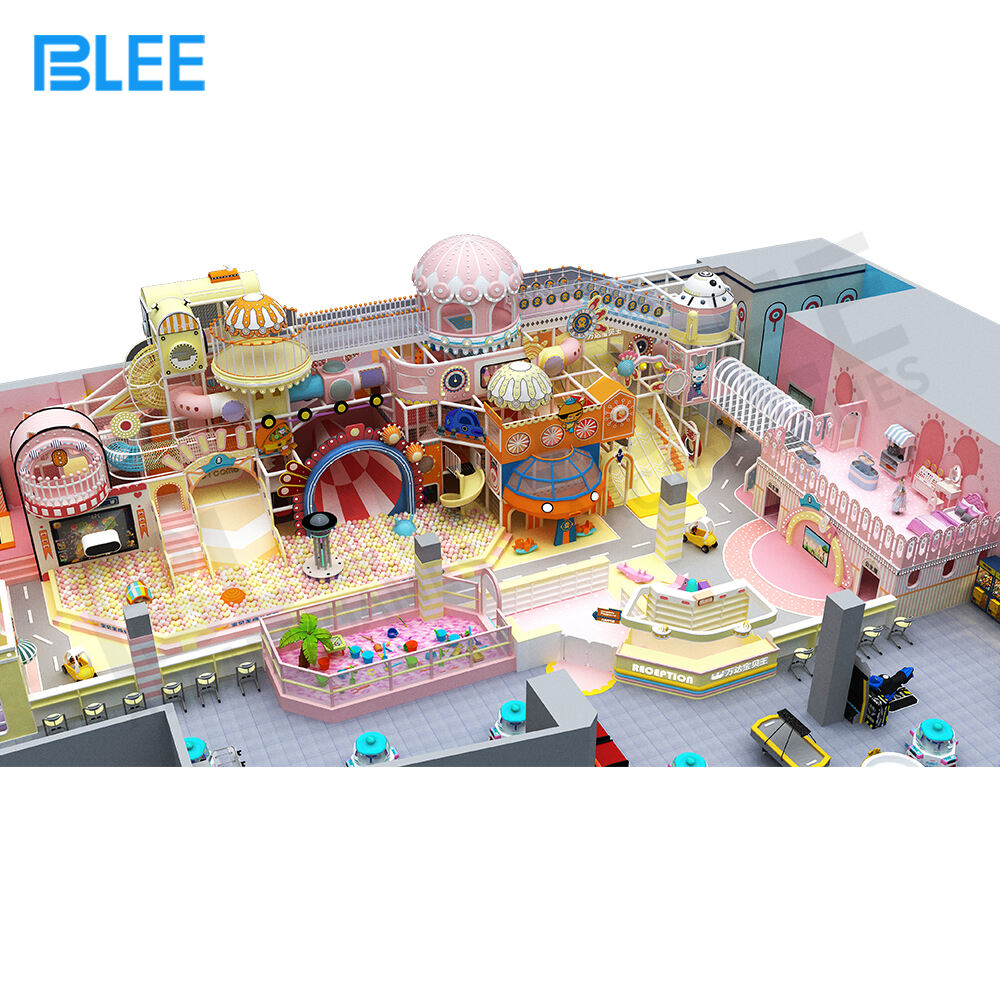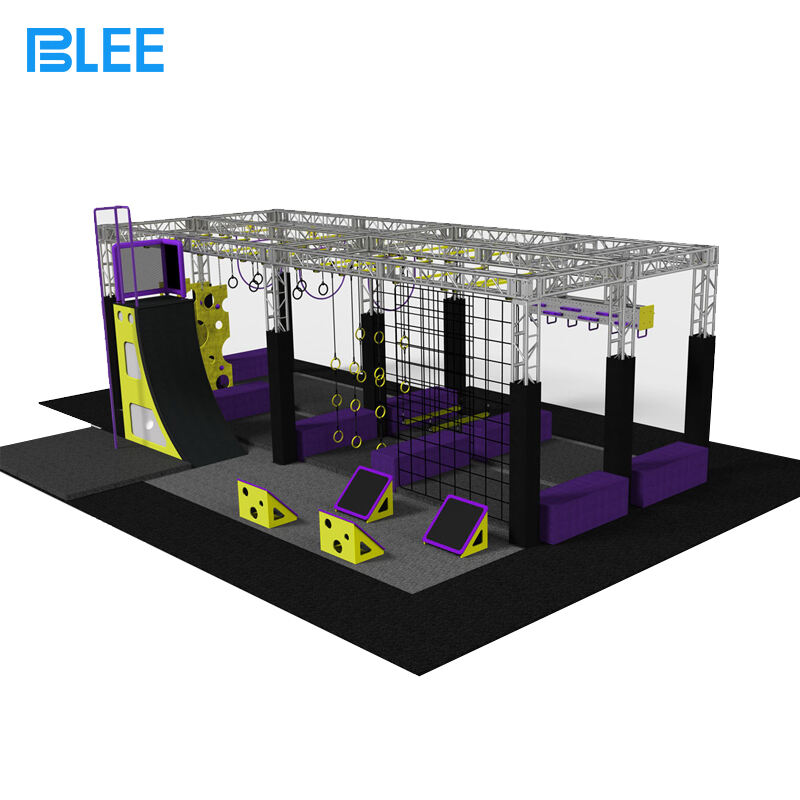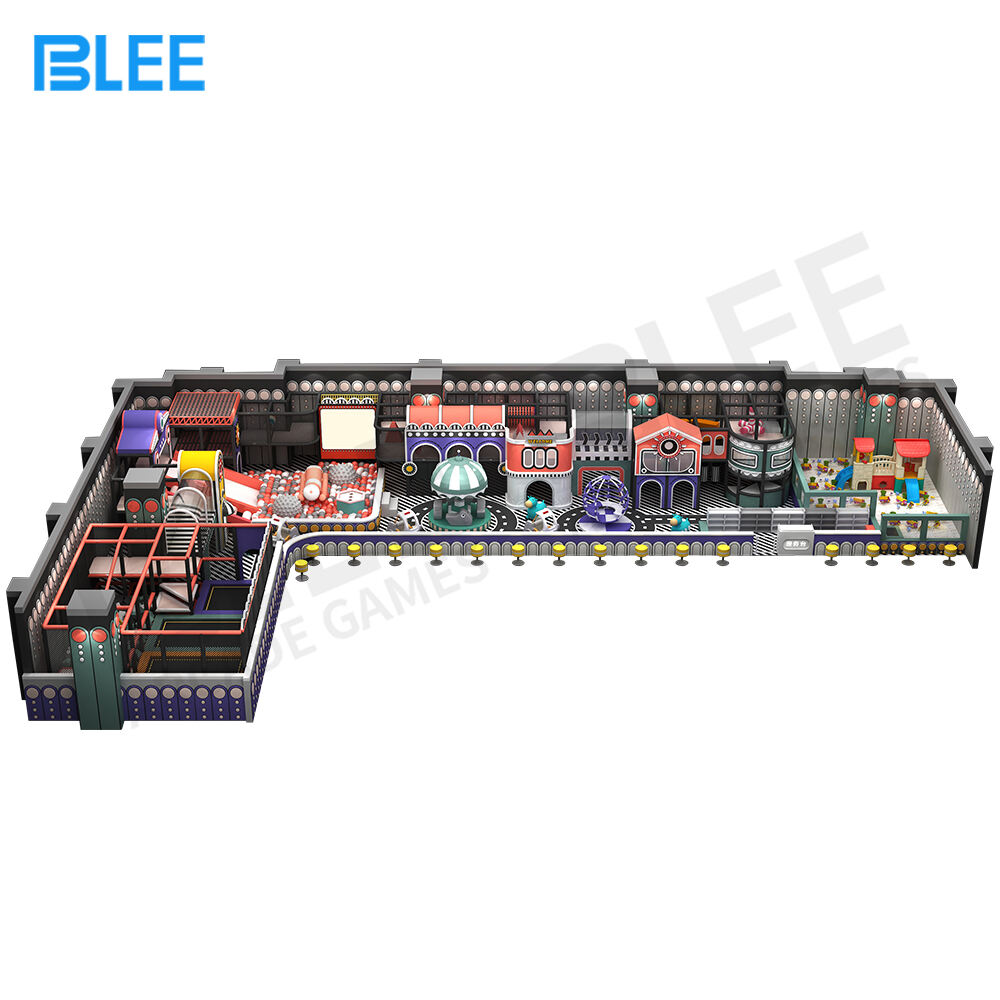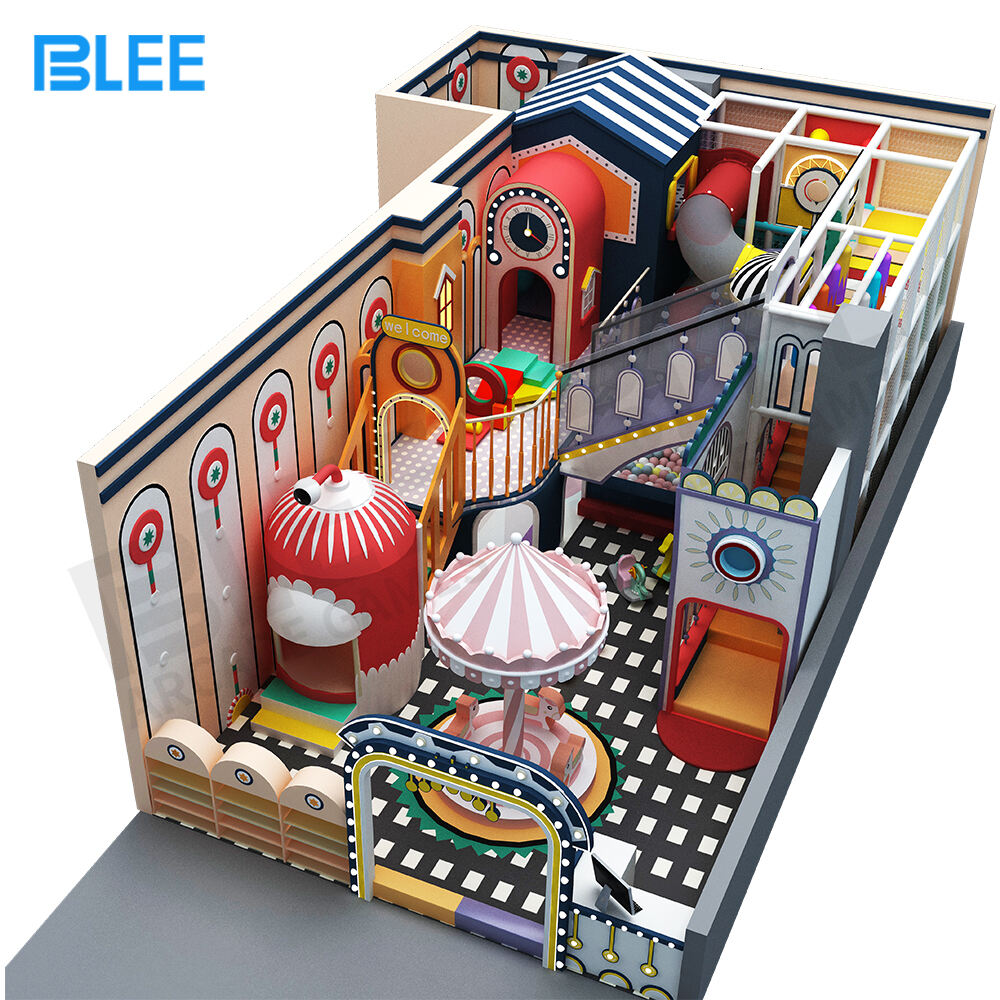Small indoor playgrounds offer numerous benefits for children, contributing to their physical, emotional, and social development. Here are some key advantages:
1. Physical Development
- Exercise: Encourages active play, helping children develop motor skills, strength, and coordination.
- Fine and Gross Motor Skills: Activities like climbing, sliding, and crawling enhance both fine and gross motor skills.
- Healthy Habits: Promotes a healthy lifestyle and can help combat childhood obesity.
2. Social Development
- Interaction: Provides opportunities for children to interact with peers, fostering social skills like sharing, cooperation, and conflict resolution.
- Teamwork: Engages children in group activities that encourage teamwork and collaboration.
- Friendship: Helps children make new friends in a fun and safe environment.
3. Cognitive Development
- Problem-Solving: Challenges in the playground, such as navigating mazes or figuring out climbing routes, enhance problem-solving and critical thinking skills.
- Creativity: Stimulates imagination and creativity through various themed play areas and interactive elements.
- Learning through Play: Incorporates educational elements in play, such as counting games, color recognition, and shape sorting.
4. Emotional Development
- Confidence: Successfully navigating playground equipment and engaging in play activities builds self-confidence and independence.
- Stress Relief: Physical activity and play help reduce stress and anxiety, contributing to overall emotional well-being.
- Happiness: Fun and enjoyment from playing with peers lead to increased happiness and a positive attitude.
5. Family Bonding
- Quality Time: Provides a space for parents and children to spend quality time together, enhancing family bonds.
- Inclusive Play: Often includes areas designed for parents to engage in play with their children.
6. Accessible Play
- Convenience: Located in accessible areas like shopping centers or community hubs, making it easy for families to visit regularly.
- Inclusive Design: Many indoor playgrounds are designed to be inclusive, catering to children of different abilities.
9. Structured and Unstructured Play
- Balance: Offers a mix of structured activities (like organized games) and unstructured play, allowing children to enjoy freedom and creativity while also participating in guided activities.
By providing a safe, engaging, and stimulating environment, small indoor playgrounds support the holistic development of children, contributing positively to their growth and well-being.










